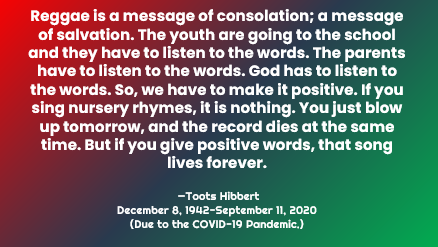
Jamaica, Unforgettable, That’s What You Are:
Looking back at my initial feelings towards my study abroad experience, I can truly say I was very wrong. I thought since all of the university travel trips and in-person study abroad experiences were canceled that I wouldn’t get the experience I was looking forward to when I first applied for the program. I will admit that there was some hesitation in the beginning. But after week one, I was truly enthusiastic about my virtual study abroad experience.
I got the chance to exchange cultural values and ideas with so many of my peers and Jamaican natives virtually. My perspective on cultural diversity has expanded. I have learned to not only focus on the past but also make the connection towards the future. I learned that culture and race are often stereotyped and misrepresented in the media. In many of the workshops that took place, I was questioned about my own cultural biases about education and creativity.
One of my greatest takeaways was how the Jamaican culture in music was influenced by American culture in the early 1950s at Jamaican dance clubs called “sound systems”. When Jamaican natives started to experiment with their own compositional style from R&B artists such as Fats Domino, they created the early beginnings of the global phenomenon we all know and can identify as reggae music. This term was coined by Toots Hibbert to describe the music as the genuine and authentic truth of the Jamaican experience. And because reggae music became so popular through the talents of Ken Boothe, Lee Perry, Bob Marley, Sister Nancy, Beres Hammond, and so many more, reggae-influenced a cultural explosion around the world. In the 1970s, roots reggae music unified all listeners to fight for their civil rights and the right to live the life that they choose. As a result, reggae music helped to influence cultural empowerment in African-American culture with the exchange and fusion of genres of music, stories, literature, food, entertainment, and clothing. There is no denying that the Jamaican music culture had no effect on the African-American culture. One of the most played line dance songs, “The Electric Boogie” by the Jamaican artist, Marcia Griffiths, is one of the staples of African- American culture. The quote below from Toots Hibbert helped me really gain a deeper understanding of how reggae music has always played a major role in Jamaican culture. It has always brought a sense of unity, pride, and liberation.
In conclusion, I am so glad that I had the opportunity to learn more about what makes Jamaica and Jamaican culture in education so important. It’s important to connect real-world situations and changes to the content in the classroom. I will take these lessons with me wherever I go.
